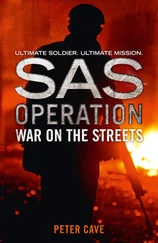“They probably don’t want to risk a submarine sinking in the channel,” Scott said. “It would be better to nail the K-363 before she gets through or before she reaches Copenhagen.”
“Kapitan!” The sonarman handed Scott earphones. “Something…!”
Scott heard the familiar shrill pinging of the Norwegians’ sonars. Between pings he heard the steady thump, thump, thump of the approaching merchant men.
Scott said. “Yuri, give a listen. They’ve gone active. Won't do them much good because Akulas have an anechoic coating on their hulls that defeats active sonar. But you never know. The Norwegians might get lucky.”
Abakov heard thrashing screws and the eerie, crystal clear pings of hull-mounted sonars.
“Right full rudder, come to new course one-five-zero,” Scott commanded.
“Right full rudder, aye.”
The K-480 turned to avoid the approaching frigates and merchantmen. Scott had his fingers crossed they wouldn’t end up in the sonar cones beating a tattoo on the K-363.
“Starpom, bring her up to periscope depth. Time we take a look around.”
“They found us!” Litvanov shouted.
Zakayev went white. He heard the pings thudding off the coated hull, felt the sonic pulses rattling his brain. The girl registered his shock: A hand flew to her mouth. She knew there was no place to hide.
Litvanov glanced up as if trying to see the sonar beams that had them fingered. So much for the K- 363’s anechoic coating. Parts of it were probably missing. He issued a tangle of orders to helm and engine room. The K-363 sped up, turned right, and left a knuckle in the water to confuse the frigates’ sonar. He counted to ten, then commanded, “Fire one LA decoy!”
It took a moment to flood the ejection tube in the bow and equalize the pressure. Then the air ram in the tube cycled and spit a noisemaker meant to sound like an American Los Angeles-class submarine into the K-363’s flow stream.
The K-363 continued swinging round, away from the whining decoy. Litvanov watched the compass wind clockwise then ordered, “Meet her! Steady on course two-seven-zero! Sonar…?”
“No change, Kapitan.”
The pinging frigates seemed as determined as ever.
“They didn’t go for it,” Litvanov said. “Maybe they’ll go for this. Fire Control!”
“Fire Control, aye,” the michman at the fire control console responded, while Veroshilov supervised the input of data.
“Stand by for target acquisition.”
Litvanov’s gaze drifted to Zakayev. The general’s face was a mask; he knew there was no alternative. Litvanov said, “Target acquisition…target two.”
“Target two?” from the michman.
“Are you deaf?” Veroshilov bellowed. “The kapitan said target two!”
Zakayev stirred. He’d learned how to read the sonar contacts, but before he could protest, Litvanov cut him off. “It’s the only way.”
“Target two acquired, Kapitan,” said the rebuked michman.
Overhead, the pinging grew more intense, more shrill. Zakayev heard the frigates’ thrashing, angry screws bearing down from the north. He knew he and his comrades had reached a point of no return and had to fight back.
“Stand by to flood tubes one and two," Litvanov commanded.
“Standing by."
The data monitor at the fire control console blipped to a vertical white line.
“I have a firing solution and generated bearing, Kapitan," said the michman.
In the torpedo room, computers aboard the two 53–65 anti-surface-ship torpedoes stabilized and locked.
“Flood tubes one and two and open outer doors," Veroshilov ordered The michman at the fire control console acknowledged that both outer doors had opened. He released the bail on the safety covers over the red-lighted firing buttons, then flipped both safety locks forward to their ARMED positions and watched the lighted buttons change from red to green. In the torpedo room an electrical pulse energized the air ram inside the tubes.
Litvanov glanced up into the overhead. Then at Zakayev.
The michman’s thick forefinger hovered over the button marked Tube One.
“Fire one!" Litvanov commanded. A moment later: “Fire two!"
* * *
Bayer forced himself to move, to make his arms and legs work, to make his mind function. The LA noisemaker hadn’t fooled him: just an attempt by the Russians to cause confusion. But then he heard Garborg bellowing, “Torpedoes in the water! Torpedoes in the water starboard side bearing zero-eight- zero!"
Bayer’s orders came instinctively. A split second later he felt the deck canting left under his feet, felt the Trondheim sheering away, heard a cup and plate shatter on deck.
The bridge speaker linked to CIC grabbed his attention when it broadcast the high-pitched up-Doppler screee of two homing torpedoes. Impossible, Bayer thought. It's all a mistake. He heard the ominous peeping of the torpedoes’ active sonar hunting for their targets. There was no mistake.
Bayer swung his binoculars to port and saw the Narvik and Norsk also sheering away at full speed. He swung right and saw the freight train of lit-up merchant ships blithely heading south.
“Captain, torpedoes passing wide to starboard!” It was an excited Garborg in CIC. “They’ve missed!”
“What? How wide a miss?”
“Almost a thousand meters….”
An alarm went off in Bayer’s head. “Mr. Dass!”
“Sir?”
“Raise those merchantmen. Say we have an emergency. Tell them to scatter. Move!”
Dass bolted for the wheelhouse and the radiotele phone.
“Signals!”
“Sir?”
“Raise Narvik and Norsk. Tell them to reform on us and stand by for orders. Then get me Stavanger.”
“Aye, Captain."
Bayer bolted after Dass into the wheelhouse. “Helmsman, come right thirty degrees,” he commanded, aiming the Trondheim back to the line of merchantmen. In the background he heard Dass on the radiotelephone trying to raise one of the ships but getting no answer.
“Are they deaf?" Bayer said, over his shoulder at Dass. He spun around. “Quartermaster, sound the ship’s siren and keep it up until we get their attention."
The Trondheim swung right, her bow bucking heavy seas, taking water over her strakes and forward gun mount. The line of merchant ships four kilometers away were now bisected by the Trondheim’s jack staff.
A sharp whoop-whoop-whoop made Bayer wince. Insane, he thought, a Russian submarine firing torpedoes at unarmed merchantmen. Insane or not, it was an act of war and he and his men were in it now. And so were the men on those merchant ships.
“Where’s Stavanger?" he said. “Do we have Stavanger?”
“Still trying, sir. Lost our clear channel.”
Bayer stood in the wheelhouse of his ship aware of the massive inflow of information being digested by computers in the Combat Information Center. And no clear channel to Stavanger to warn that a war was about to start.
Bayer raised binoculars to scan the merchant line. His mind worked at lightning speed. How fast are those torpedoes? Fifty knots. Time to target? Under three minutes.
Dass had raised someone on the radiotelephone. A signal lamp on the bridge of the lead ship began to blink on and off.
“Answer them,” Bayer ordered.
The signals yeoman, a hand over the phone’s mouthpiece, called, “Stavanger, Captain.”
But Bayer didn't move. He stood frozen, binoculars to his eyes, staring at the big white LNG painted on the side of the second ship in line. He thought to give an order to the helm; to stop their headlong rush into the line of freighters, some stacked high with cargo containers. But it was the ship with four huge green domes filled with liquid natural gas that held his attention for what seemed an eternity, until the world lit up like a million suns.
Читать дальше












